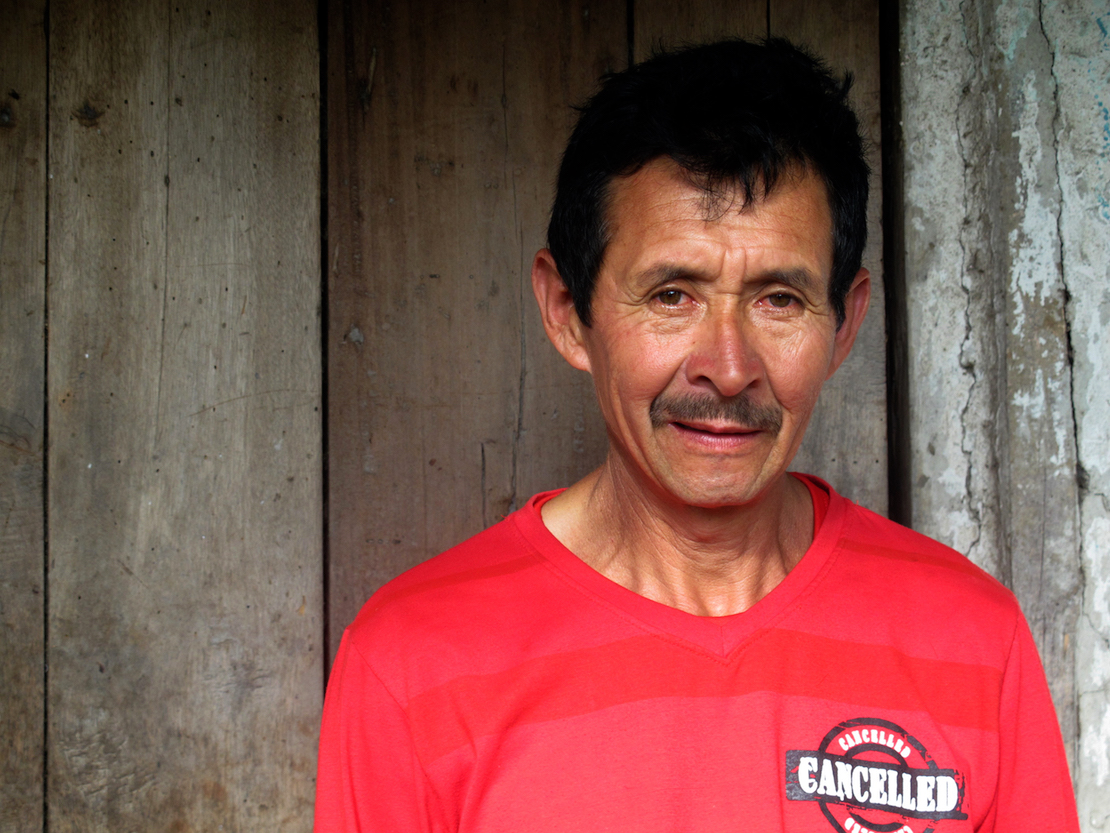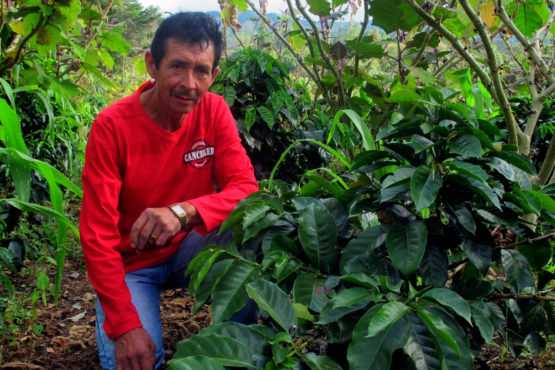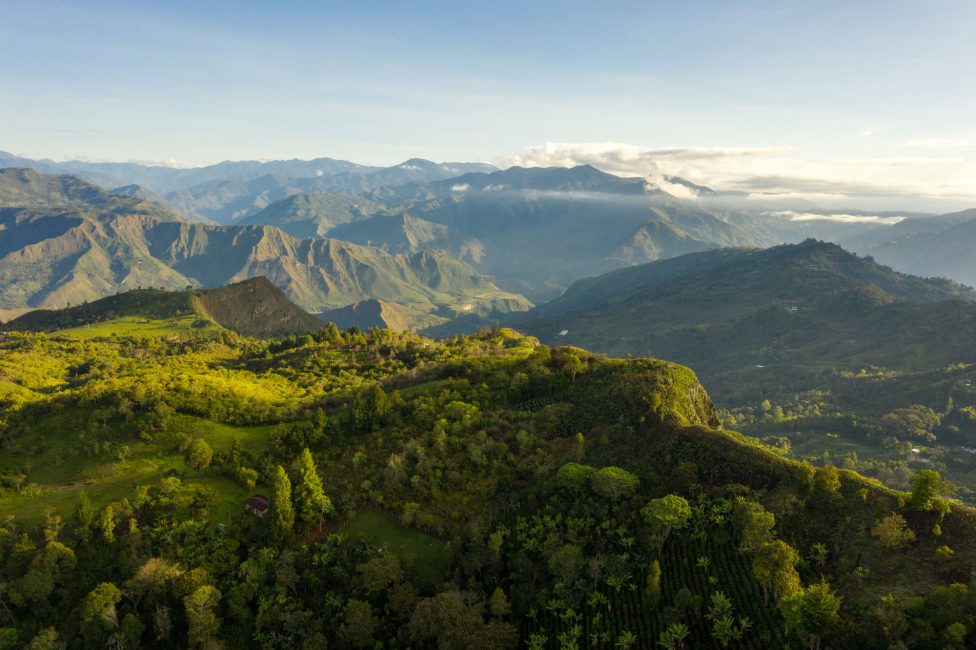El Plan
Complex and rich with a silky mouthfeel, butterscotch sweetness and notes of dark chocolate mousse, nougat, candied orange and dates.
Don José Dolores Eraza’s farm, ‘El Plan’ is located in the Department of Nariño in the Southwest of Colombia, just above the equator and on the border with Ecuador. The region is strikingly mountainous and boasts no fewer than five volcanoes: Chiles, Cumbal, Azufral, Doña Juana and Galeras.
Coffee in Nariño is grown at altitudes that reach 2,200 metres above sea level, making it some of highest grown coffee in the world. Typically it is very difficult to produce coffee at such high altitudes (as many plants suffer from ‘die back’) however Narino’s proximity to the equatorial line and steep hills around the volcanoes provide a great angle for sun exposure, creating the right micro climate for coffee plants to thrive. The high altitude of cultivation allows for slow maturation and development of the coffee cherry, giving time for concentrated sugars to develop in the fruit and resulting in a very unique, sweet, and complex cup profile from this region.
Some of Colombias best coffees come from Narino, however, due to the remoteness of many of the farms, and their small size (producers in their region typically own less than two hectares of land), many small holders in this region traditionally found it difficult to break into markets for higher quality.
Don José, from the town of El Salado in San Pedro de Cartago is a fortunate exception. He is 53 years old and manages his one hectare farm with stringent care and attention. He used to manage the land with the help of his wife. Unfortunately, she recently passed away, leaving Don José to manage his 2,000 Caturra trees on his own. He stills feels young, however, and sets about his work with enthusiasm. His dream is to eventually raise a family that can continue with the farm and the coffee tradition.
ABOUT FUDAM
Don José works closely with his local producer organisation, FUDAM. Formed of approximately 60 families from within the municipality of San Pedro de Cartago, Fundación Agraria y Ambiental Para el Desarrollo Sostenible (The Agrarian and Environmental Foundation for Sustainable Development, or FUDAM) is an organisation devoted to improving human development and environmental sustainability through agricultural practices. The group represents coffee growers as well as developing projects in income diversification (such as raspberry farming) and food security.
As the group is small, projects and activities are highly democratic and have far wider reach than the Foundations’ immediate membership.
FUDAM was established in 1999 by the Lasso family. The organisation was born out of the family’s desire to help their neighbours surmount constant obstacles and was initially focused only on women. The Lasso family was one of the earliest to farm coffee here (and the very first to own a mechanical pulper). They, along with about 15 other individuals, founded FUDAM in an effort to help their neighbours surmount the many difficulties that they face. One of the group’s first projects was to finance one milking cow per woman in the communities where they worked. The idea behind this was to give women economic independence from their husbands, and thus to give them extra income for the household. The project was an immediate success and gave 50 women a different standing with their husbands, which made a huge start towards subverting macho culture in the communities. Another early project was to lobby different NGOs and local governments to get the funds necessary to improve members’ processing infrastructure. On that occasion, the group succeeded in financing 30 pulpers and 30 plastic structures with African beds for drying.
From there FUDAM has moved on to helping growers harness quality coffee as a means to improve the quality of life for its members. They are very active in trying to find specialty markets for their members coffees, using quality competitions to promote and discover exceptional coffees, and working closely with government organisations that fund activities that positively impact quality. Although they have a base of 100 growers, they buy from more than 300 growers across the region and permit non- members to participate in their specialty coffee programs. They have a warehouse in La Union with a cupping lab, where they cup every lot delivered by the growers in order to separate them according to quality.
As means of furthering their goals, FUDAM recently jointed forces with Pergamino, our export partner who is based in Antioquia. Pergamino has developed a special program with FUDAM that includes 200 growers across 5 different towns, and is working closely with these producers to connect them with buyers throughout the world, like us! Pergamino has previously established similar projects with other small producer organizations in Antioquia, Huila and Cauca, all of which have been hugely successful in identifying high quality lots from small producers and helping producers place these coffees at market for a higher price. Pergamino cups with the group frequently during the harvest season and also accepts samples into their lab in Antioquia so that they can provide lots of feedback. The project has already resulted in lots like Don José’s being separated out and sold at significantly higher premiums.
Pergamino sees great potential for the future of this relationship and have recently established an agreement with FUDAM that includes not only purchasing from the group but also serving as mentors and trainers in the group’s quest for improved quality. In the coming year, cuppers from Pergamino will mentor the group, teaching cupping and helping them establish cupping protocols. As an end result, Pergamino will help find markets for all coffees scoring 84 or above. They also plan to hold workshops on organic fertilizers with growers and to provide expanded technical assistance to help growers improve their quality.


